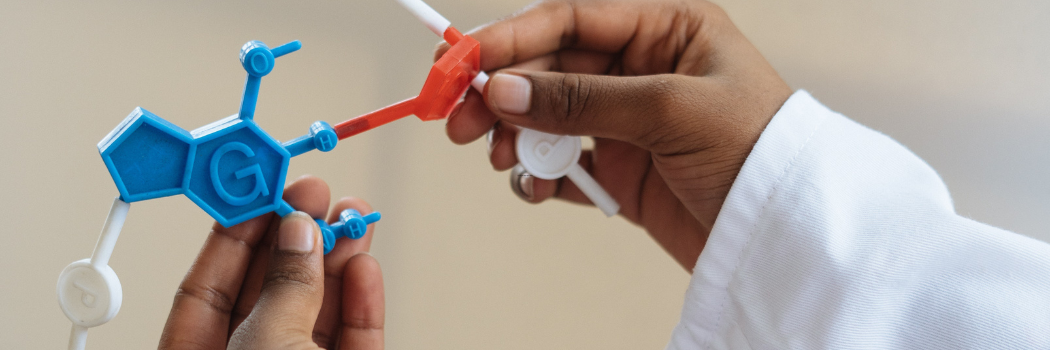
Our highly-rated Department of Biosciences has helped to decipher the mechanical code of DNA.
Working with Johns Hopkins University, Barcelona Institute of Science and Technology and the University of Barcelona, the research reveals new ways in which nature encodes biological information in DNA sequence.
The 'mechanical code'
The researchers used a next-generation DNA-sequencing-based technology called loop-seq, which they've developed, to show that the local sequence of bases along a region of DNA determines the local bendability of DNA.
Via a large number of measurements, coupled with computational analysis and machine learning, they determined the mechanical code - the mapping between local sequence and the local deformability of DNA.
Their discovery could help in the treatment of cancer.
DNA is a book containing instructions that cells need to survive. It is a special kind of book where the ability to turn or fold a page depend on the words written on the page.
This is because in the book of DNA, those words somehow also control the mechanical properties of the paper.
It is well known that reading, copying, packaging, and repairing the genetic information stored in the sequence of bases (the As, Ts, Gs, and Cs) along DNA routinely involves processes that require local mechanical deformations of DNA.
A novel direction for cancer treatment
The researchers found that the mechanical code of DNA can be modified by 'methylation', which is a known chemical modification that DNA bases are routinely subject to at various stages in an organism's development.
Abberant methylation has been linked to several cancers.
The discovery that methylation alters the mechanical code presents the possibility that biological development programmes, or diseases such as cancer, could be achieving a part of their effects on cells by altering the information encoded via the mechanical code.






